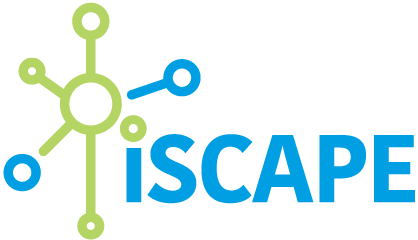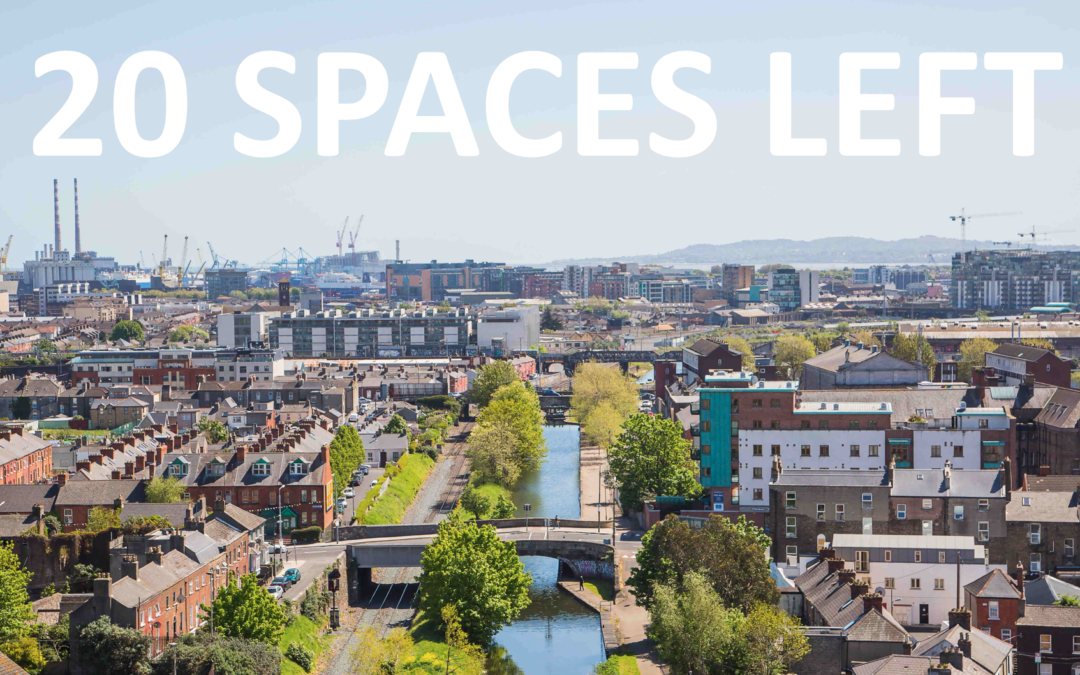Just 20 spaces left for the #iSCAPE Final Event in #Dublin that will take place on 8 November 2019! Presenting key project results and findings and discussing opportunities for the improvement of #AirPollution control! To find out more see below, to register for free follow this link
WHEN?
Date: 8 November 2019
Time: 08:30 – 17:30 followed by the reception
WHERE?
Venue: The Marrion Room, The Royal Dublin Society
Address: Merrion Road, Ballsbridge, Dublin 4, Ireland
How to get there? You can find directions here.
AGENDA
A draft of the agenda can be found here: iSCAPE FINAL EVENT Agenda DRAFT (pdf, 130 KB) (UPDATED 16 October)
AUDIENCE
The event is targeted towards professionals from both the public and private sector, policy-makers, and researchers.
ONLINE REGISTRATION
All participants are kindly asked to register online through this link by November 4, 2019. Due to the limited availability of seats, early registration is strongly recommended to ensure your participation. Participation in the event is free of charge. Please read our event attendee privacy notice carefully as it describes how we use and process your personal data provided to us through the online registration form in relation to your attendance to this event.
MORE INFORMATION
General queries about the project:
info@iscapeproject.eu
Local assistance:
Louise Dunne
Research Manager
UCD School of Architecture, Planning, and Environmental Policy
Email: louise.dunne@ucd.ie
Phone: +353 1 716 2673
CONFIRMED SPEAKERS
Hans-Guido Mücke
Dr. Hans-Guido Mücke is the air quality and health scientist and manager of the WHO Collaborating Centre for Air Quality Management and Air Pollution Control (German Environment Agency/Umweltbundesamt in Berlin). He is responsible for the co-operation with the WHO European Centre for Environment and Health, Bonn office, and partners of the 53 Member States of the WHO European Region in the field of air hygiene and climate change. Consultant and national representative at WHO meetings, e.g. ‘Improving public health responses to extreme weather events – heat waves (2007)’, ‘Climate Change, Extreme Weather Events and Public Health (2010)’, ‘Health in Climate Change: strengthening risk communication (2015) and UNECE/WHO Convention on Long-range transboundary air pollution – Task Force on Health (since 2010). He is also the climate change and health expert since the establishment of the German Climate Change Adaptation Strategy in 2008. He’s currently the supervisor to national projects, co-partner in and advisor to respective projects in this field. Invited speaker at the EU side event ‘Climate Change Adaptation and health’, COP23 Fiji in Bonn/D December 2017. Co-author of the Recommendations for Action Heat Action Plans to protect human health in Germany (2017; https://www.bmu.de/fileadmin/Daten_BMU/Download_PDF/Klimaschutz/hap_handlungsempfehlungen_en_bf.pdf ). Finally, he’s the Deputy head of Section ‘Environmental Medicine and Health Effects Assessment’ in Berlin.
Richard Baldauf
Dr. Baldauf has over 20 years of experience conducting research on emissions, air quality impacts, and adverse health effects from exposures to air pollution emitted by transportation and industrial sources. His research focuses on the development of policies and practices to mitigate air pollution emissions and impacts at local, urban, and global scales. His research has led to national emissions standards and best practices to mitigate air pollution impacts using urban development including built and green infrastructure. He has a joint affiliation with the U.S. Environmental Protection Agency’s (EPA) Office of Research & Development and the Office of Transportation & Air Quality where he has led cross-disciplinary research teams focusing on air quality measurements, air dispersion modeling, and sustainable transportation and urban development issues. He also maintains Adjunct Professor appointments in the School of Engineering at North Carolina State University and Texas A&M University. Dr. Baldauf co-manages the U.S. EPA’s Mobile Source Emissions Research Laboratory and led the cross-agency Sustainable Transportation Initiative. He has published over 100 peer-review journal articles and several book chapters on these topics during his career at the EPA.
Jamie Cudden
Jamie Cudden leads Dublin City Council’s Smart City programme and rollout of the ‘Smart Dublin’ initiative. His work cuts across the public and private sector building new opportunities to deploy smart city solutions and demonstrators. He represents Dublin on leading global industry and smart city alliances including TM Forum, Wireless Broadband Alliance, Harvard TECH Innovators Forum, and is the current President of the City Protocol Society. Jamie holds a science degree from Trinity College Dublin and a Masters in Geographic Information Science (GIS) from University College London. He previously worked in analyst and mapping roles with the Home Office, Met Police and Jill Dando Institute of Crime Science. He is the current Chairman with ECO-UNESCO, a leading Irish environmental education charity that works with young people across Ireland.
Carolyn Hassan
Carolyn Hassan is the founder and Director of Knowle West Media Centre (KWMC) www.kwmc.org.uk and Bristol Living Lab. KWMC is an arts and media organisation that delivers programmes ranging from citizen-led housing, citizen sensing, to young peoples’ arts and technology programmes. KWMC works closely with academic institutions including the University of Bristol and collaborated with Helen Manchester, Reader in Digital Inequalities and Urban Futures as part of the Horizon 2020 Lighthouse project Replicate https://replicate-project.eu/. She is currently an International Ambassador for Bristol.
Enda Hayes
Professor Enda Hayes is the Director of the Air Quality Management Resource Centre at the University of the West of England, Bristol, UK. He has worked on air pollution and broader environmental management challenges for the last 20 years supporting local authorities, UK Government, EU Member States, EEA and EU Commission in addition to projects in Asia and Africa. His diverse research interests include the interrelationship between air pollution, health, socio-economic status and citizen behaviour (with a focus on transport and solid fuel use); ammonia emission from intensive agriculture; and emerging pollutants such as bioaerosols and microplastics. Enda is the Technical Director of the ClairCity Project (www.claircity.eu).

